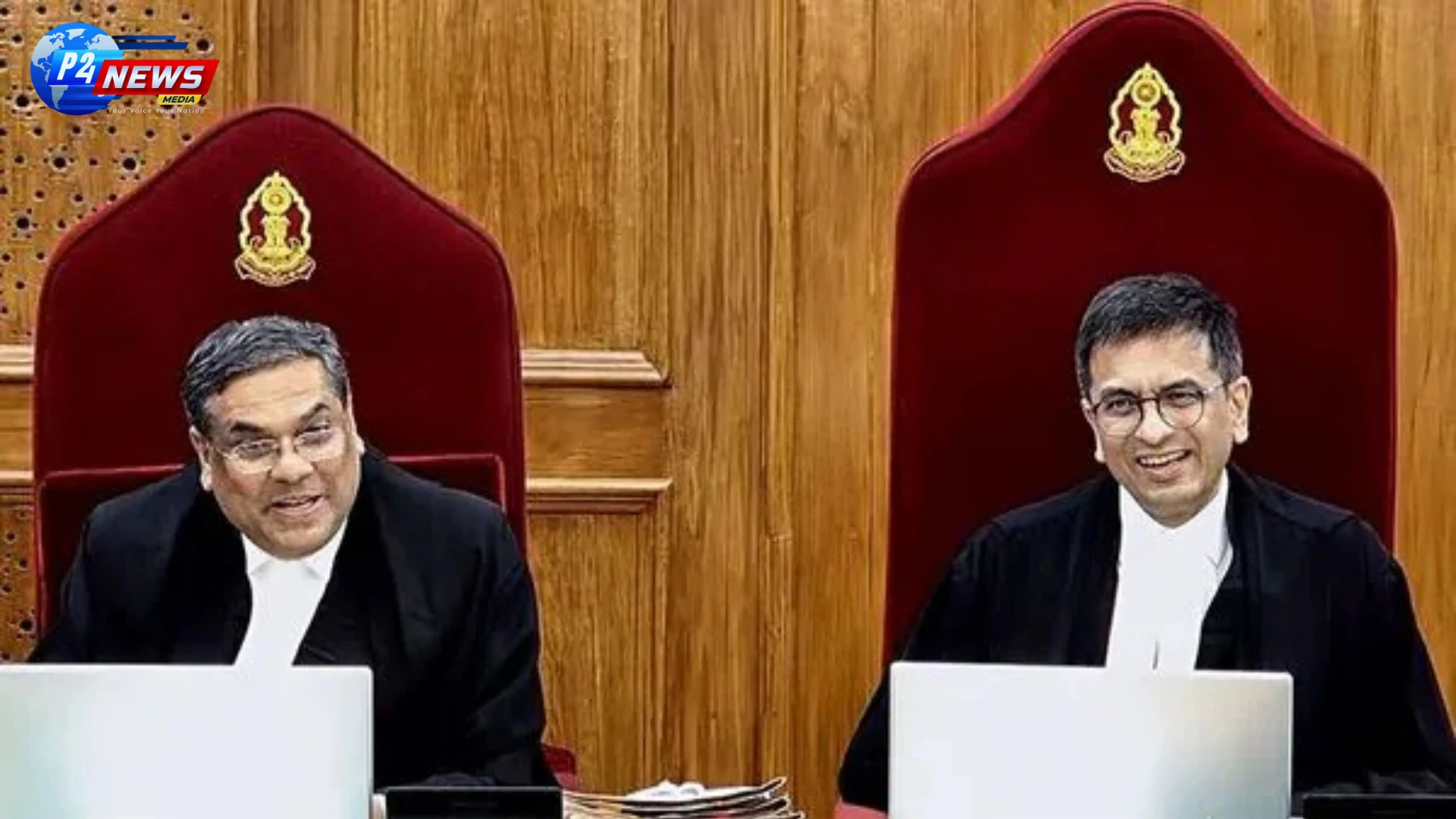Justice Sanjiv Khanna will officially take office as India’s 51st Chief Justice today, succeeding Justice Chandrachud and focusing on vital judicial reforms.
Justice Sanjiv Khanna will officially take office as India’s 51st Chief Justice today, succeeding Justice Chandrachud and focusing on vital judicial reforms.
Justice Sanjiv Khanna is poised to officially take his place as the 51st Chief Justice of India today, succeeding Justice DY Chandrachud in a ceremony that signifies a pivotal moment for the Indian judiciary. The event, presided over by President Droupadi Murmu at Rashtrapati Bhavan, is scheduled for 10 am, marking the beginning of a new chapter in judicial leadership. Justice Khanna's appointment follows Justice Chandrachud's retirement on November 10 after an impactful two-year tenure that emphasized significant judicial advancements in constitutional matters, modernization of technology, and accessibility within the legal framework.
The announcement of Justice Khanna's appointment came from the Union government on October 24, 2024, a week following Justice Chandrachud's formal recommendation. In light of this transition, Justice Chandrachud expressed his confidence in Khanna's capabilities to steer the judiciary into the future, referring to him as an experienced and exceptional judge with a wealth of knowledge in legal and administrative matters. He reassured that the institution's future is secure in Khanna's hands and highlighted the incoming Chief Justice's dedication to maintaining justice, integrity, and the rule of law.
Justice Sanjiv Khanna's legal career spans over four decades. He began his journey in 1983 by enrolling with the Bar Council of Delhi and initially practiced in the Tis Hazari district courts. His rise was marked by his roles as senior standing counsel for the Income Tax Department and as standing counsel for the National Capital Territory of Delhi. He took elevation to the Delhi High Court in 2005, becoming a permanent judge the following year, and uniquely ascended to the Supreme Court without serving as a chief justice in any high court before his appointment.
During the politically charged atmosphere of the 2019 Lok Sabha elections, Justice Khanna granted interim bail to then Delhi Chief Minister Arvind Kejriwal, showcasing his balanced approach in handling cases that involve high-profile individuals and intricate political situations.
Justice Khanna comes from a distinguished legal lineage, which adds to his legacy of judicial integrity. His father, Justice Dev Raj Khanna, made notable contributions to the Delhi High Court, while his uncle, Justice HR Khanna, is remembered as a principled figure within Indian judicial history, famously dissenting in the ADM Jabalpur case during India's Emergency in 1976. His dissent was a bold statement against the majority view that permitted the abrogation of fundamental rights during that tumultuous period, affirming his commitment to the rule of law.
As Justice Khanna embarks on his tenure, which is expected to conclude on May 13, 2025, there are high expectations regarding his focus on judicial reforms and enhancing the independence of the judiciary. One of the most pressing issues he faces is the backlog of cases within the Indian legal system. To address this challenge, Justice Khanna is anticipated to implement innovative solutions like case categorization and technology integration, aiming to expedite case resolutions while maintaining the quality of justice.
In addition, he previously held the role of executive chairman of the National Legal Services Authority (NALSA), where he championed initiatives aimed at improving access to justice, particularly for marginalized communities. His leadership is expected to drive significant changes in legal services across the nation.
As the Indian legal community looks towards Justice Sanjiv Khanna with optimism, the potential for advancements within the judicial landscape remains a focal point. His experience and commitment signal a promising future for the judiciary in India, making his appointment a significant moment in the country's legal journey.
Like
Dislike
Love
Angry
Sad
Funny
Pray
9th Ayurveda Day in Melbourne: A Celebration of Ayurvedic Innovations and Global Health Impact
November 10, 2024Australia’s Terror Alert Jumps to ‘Probable’: What You Need to Know About the Increased Risk
August 05, 2024🍪 We Value Your Privacy and Experience Hi there! We use cookies to enhance your browsing experience, provide personalized content, and analyze site traffic. By continuing to use our site, you consent to our use of cookies.







Comments 0